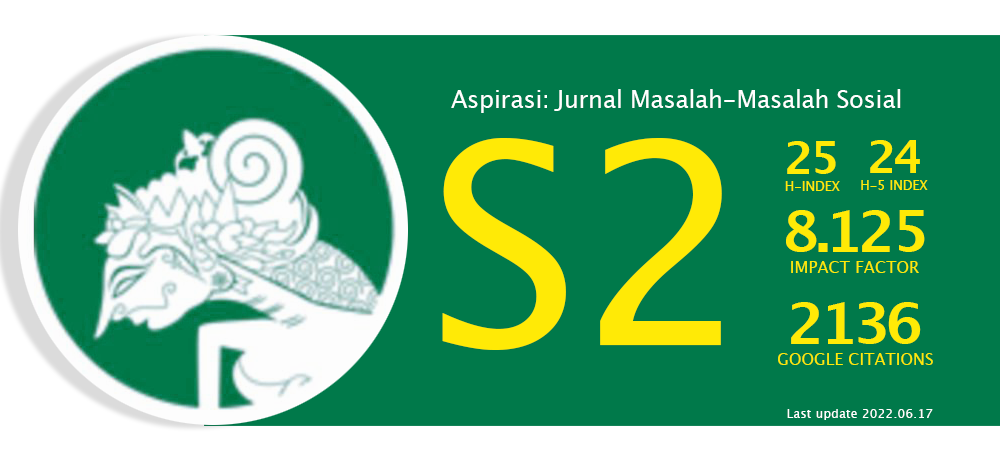CSR and Sustainability of the Palm Oil Industry in Riau Province
Abstract
Keberlanjutan industri minyak kelapa sawit menjadi isu yang kompleks dan kontroversial, mengingat dampaknya terhadap lingkungan dan sosial. Penelitian ini menggali praktik Corporate Social Responsibility (CSR) dalam konteks keberlanjutan industri minyak kelapa sawit di Provinsi Riau. Dengan menggunakan metodologi kualitatif, penelitian ini melakukan tinjauan pustaka komprehensif yang mengutip beragam sumber seperti jurnal akademis, situs web, dan laporan resmi pemerintah terkait CSR dan keberlanjutan sektor minyak kelapa sawit. Analisis dilakukan dengan memanfaatkan Nvivo 12 Plus sebagai alat kunci. Temuan penelitian menerangi beragam pendekatan CSR yang diadopsi oleh perusahaan minyak kelapa sawit di Provinsi Riau, meliputi praktik pertanian berkelanjutan, perlindungan integritas lingkungan dan keanekaragaman hayati, pemberdayaan masyarakat, penguatan infrastruktur dan akses ke layanan penting, penerapan standar transparansi dan sertifikasi, serta investasi dalam riset dan inovasi. Implementasi inisiatif CSR memainkan peran penting dalam memajukan keberlanjutan industri minyak kelapa sawit di wilayah ini. Inisiatif ini menjadi mekanisme penting untuk mengurangi dampak lingkungan yang merugikan, meningkatkan kesejahteraan masyarakat lokal, memupuk kepercayaan di kalangan pemangku kepentingan, dan mendorong pembangunan ekonomi yang berkelanjutan. Namun, perlu diakui bahwa implementasi program CSR masih memiliki tantangan, sehingga Dewan Perwakilan Rakyat (DPR) sebaiknya mendorong pemerintah untuk menerapkan regulasi yang mendukung serta menerapkan pengawasan yang ketat.
Abstract: The sustainability of the palm oil industry stands as a multifaceted and contentious matter, given its profound environmental and social repercussions. This study delves into Corporate Social Responsibility (CSR) practices within the context of the palm oil industry's sustainability in Riau Province. Employing a qualitative methodology, this research conducts a comprehensive literature review drawing from diverse sources such as academic journals, websites, and official government reports concerning CSR and the sustainability of the palm oil sector. The analysis leverages Nvivo 12 Plus as a key tool. The research findings illuminate a varied landscape of CSR approaches adopted by palm oil companies in Riau Province, encompassing sustainable agricultural practices, safeguarding environmental integrity and biodiversity, fostering community empowerment, bolstering infrastructure and access to crucial services, embracing transparency and certification standards, and investing in research and innovation. Notably, the implementation of CSR initiatives plays a pivotal role in advancing sustainability within the palm oil industry in this region. These initiatives serve as crucial mechanisms for mitigating adverse environmental impacts, uplifting local communities, cultivating trust among stakeholders, and fostering sustainable economic development. However, it must be acknowledged that the implementation of this CSR program presents challenges, the House of Representatives (DPR) should motivate the government to implement accommodative regulations and supervisory measures.
Keywords
Full Text:
PDFReferences
Abdelhalim, K., & Eldin, A. G. (2019). Can CSR help achieve sustainable development? Applying a new assessment model to CSR cases from Egypt. International Journal of Sociology and Social Policy, 39(9–10), 773–795. https://doi.org/10.1108/IJSSP-06-2019-0120
Abdul-Hamid, A. -Q., Ali, M. H., Osman, L. H., Tseng, M. -L., & Lim, M. K. (2022). Industry 4.0 quasi-effect between circular economy and sustainability: Palm oil industry. International Journal of Production Economics, 253, 108616. https://doi.org/10.1016/j.ijpe.2022.108616
Bardos, K. S., Ertugrul, M., & Gao, L. S. (2020). Corporate social responsibility, product market perception, and firm value. Journal of Corporate Finance, 62, 101588. https://doi.org/10.1016/j.jcorpfin.2020.101588
Cornelius, N., Todres, M., Janjuha-Jivraj, S., Woods, A., & Wallace, J. (2008). Corporate social responsibility and the social enterprise. Journal of Business Ethics, 81(2), 355–370. https://doi.org/10.1007/s10551-007-9500-7
Dai, J., & Menhas, R. (2020). Sustainable development goals, sports and physical activity: The localization of health-related sustainable development goals through sports in China: A narrative review. Risk Management and Healthcare Policy, 13, 1419–1430. https://doi.org/10.2147/RMHP.S257844
Descals, A., Szantoi, Z., Meijaard, E., Sutikno, H., Rindanata, G., & Wich, S. (2019). Oil palm (Elaeis guineensis) mapping with details: Smallholder versus industrial plantations and their extent in Riau, Sumatra. Remote Sensing, 11(21), 2590. https://doi.org/10.3390/rs11212590
Hospes, O. (2014). Marking the success or end of global multi-stakeholder governance? The rise of national sustainability standards in Indonesia and Brazil for palm oil and soy. Agriculture and Human Values, 31(3), 425–437. https://doi.org/10.1007/s10460-014-9511-9
Invernizzi, A. C., Bellucci, M., Acuti, D., & Manetti, G. (2021). Form and substance: Visual content in CSR reports and investors’ perceptions. Psychology & Marketing, 39(5), 974–989. https://doi.org/https://doi.org/10.1002/mar.21635
Johnson, A. (2022). The Roundtable on Sustainable Palm Oil (RSPO) and transnational hybrid governance in Ecuador’s palm oil industry. World Development, 149, 105710. https://doi.org/10.1016/j.worlddev.2021.105710
Karwowski, M., & Raulinajtys-Grzybek, M. (2021). The application of corporate social responsibility (CSR) actions for mitigation of environmental, social, corporate governance (ESG) and reputational risk in integrated reports. Corporate Social Responsibility and Environmental Management, 28(4), 1270–1284. https://doi.org/10.1002/csr.2137
Laurance, W. F., Sayer, J., & Cassman, K. G. (2014). Agricultural expansion and its impacts on tropical nature. Trends in Ecology and Evolution, 29(2), 107–116. https://doi.org/10.1016/j.tree.2013.12.001
Limaho, H., Sugiarto, Pramono, R., & Christiawan, R. (2022). The need for global green marketing for the palm oil industry in Indonesia. Sustainability, 14(14), 8621. https://doi.org/10.3390/su14148621
López-Concepción, A., Gil-Lacruz, A. I., & Saz-Gil, I. (2022). Stakeholder engagement, CSR development and SDGs compliance: A systematic review from 2015 to 2021. Corporate Social Responsibility and Environmental Management, 29(1), 19–31. https://doi.org/10.1002/csr.2170
Maluin, F. N., Hussein, M. Z., & Idris, A. S. (2020). An overview of the oil palm industry: Challenges and some emerging opportunities for nanotechnology development. Agronomy, 10(3), 356. https://doi.org/10.3390/agronomy10030356
Monteiro de Carvalho, C., Silveira, S., La Rovere, E. L., & Iwama, A. Y. (2015). Deforested and degraded land available for the expansion of palm oil for biodiesel in the state of Pará in the Brazilian Amazon. Renewable and Sustainable Energy Reviews, 44(April 2015), 867–876. https://doi.org/10.1016/j.rser.2015.01.026
Montiel, I., Cuervo-Cazurra, A., Park, J., Antolín-López, R., & Husted, B. W. (2021). Implementing the United Nations’ sustainable development goals in international business. Journal of International Business Studies, 52(5), 999–1030. https://doi.org/10.1057/s41267-021-00445-y
Moreno-Peñaranda, R., Gasparatos, A., Stromberg, P., Suwa, A., Pandyaswargo, A. H., & Puppim de Oliveira, J. A. (2015). Sustainable production and consumption of palm oil in Indonesia: What can stakeholder perceptions offer to the debate? Sustainable Production and Consumption, 4(October 2015), 16–35. https://doi.org/10.1016/j.spc.2015.10.002
Naidu, L., & Moorthy, R. (2021). A review of key sustainability issues in Malaysian palm oil industry. Sustainability, 13(19), 10839. https://doi.org/10.3390/su131910839
Palm Oil Agribusiness Strategic Policy Institute. (2023, March 6). Luas perkebunan kelapa sawit Indonesia. Palmoilina.Asia. https://palmoilina.asia/sawit-hub/data-luas-perkebunan-kelapa-sawit/
Paterson, R. R. M., & Lima, N. (2018). Climate change affecting oil palm agronomy, and oil palm cultivation increasing climate change, require amelioration. Ecology and Evolution, 8(1), 452–461. https://doi.org/10.1002/ece3.3610
Phochanikorn, P., & Tan, C. (2019). An integrated multi-criteria decision-making model based on prospect theory for green supplier selection under uncertain environment: A case study of the Thailand palm oil products industry. Sustainability, 11(7), 1872. https://doi.org/10.3390/su11071872
Pramudya, E. P., Hospes, O., & Termeer, C. J. A. M. (2018). The disciplining of illegal palm oil plantations in Sumatra. Third World Quarterly, 39(5), 920–940. https://doi.org/10.1080/01436597.2017.1401462
Pye, O. (2019). Commodifying sustainability: Development, nature and politics in the palm oil industry. World Development, 121(September 2019), 218–228. https://doi.org/10.1016/j.worlddev.2018.02.014
Retnaningsih, U. O., Asriwandari, H., Ningsih, R. B., Purwanti, I. T., Sidiq, R. S. S., Artina, D., & Rosaliza, M. (2022). The persistence of patriarchy in the palm oil sector: Evidence from the Riau Province of Indonesia. Cogent Social Sciences, 8, 2112825. https://doi.org/10.1080/23311886.2022.2112825
Rim, H., Kim, J., & Dong, C. (2019). A cross-national comparison of transparency signaling in corporate social responsibility reporting: The United States, South Korea, and China cases. Corporate Social Responsibility and Environmental Management, 26(6), 1517–1529. https://doi.org/10.1002/csr.1766
Rizaty, M. A. (2022, January 31). Riau miliki luas perkebunan kelapa sawit terluas pada 2021. Databoks.Katadata.co.id. https://databoks.katadata.co.id/datapublish/2022/01/31/riau-miliki-luas-perkebunan-kelapa-sawit-terluas-pada-2021
Saputra, E. (2019). Beyond fires and deforestation: Tackling land subsidence in peatland areas, A case study from Riau, Indonesia. Land, 8(5), 11–13. https://doi.org/10.3390/land8050076
Septiyarini, D., Kusrini, N., & Kurniati, D. (2022). Sustainability of palm oil company CSR in supporting village status change. Economics Development Analysis Journal, 11(2), 165–18. https://doi.org/10.15294/edaj.v11i2.55735
Shafieizadeh, K., & Tao, C. W. -W. (2020). How does a menu’s information about local food affect restaurant selection? The roles of corporate social responsibility, transparency, and trust. Journal of Hospitality and Tourism Management, 43(June 2020), 232–240. https://doi.org/10.1016/j.jhtm.2020.04.007
Sorsa, V. P., & Fougère, M. (2021). Toward political explanation of change in corporate responsibility: Political scholarship on CSR and the case of palm oil biofuels. Business and Society, 60(8), 1895–1923. https://doi.org/10.1177/0007650320915919
Sun, Z., Jai, K., & Zhao, L. (2019). Corporate social responsibility and sustainability of local community: A case study of the transnational project in China-Pakistan economic corridor. Sustainability, 11(22), 6456. https://doi.org/10.3390/su11226456
Syahza, A., & Asmit, B. (2020). Development of palm oil sector and future challenge in Riau Province, Indonesia. Journal of Science and Technology Policy Management, 11(2), 149–170. https://doi.org/10.1108/JSTPM-07-2018-0073
Tanimoto, K. (2019). Do multi-stakeholder initiatives make for better CSR? Corporate Governance (Bingley), 19(4), 704–716. https://doi.org/10.1108/CG-08-2018-0267
Tey, Y. S., Brindal, M., Djama, M., Hadi, A. H. I. A., & Darham, S. (2021). A review of the financial costs and benefits of the roundtable on sustainable palm Oil certification : Implications for future research. Sustainable Production and Consumption, 26, 824–837. https://doi.org/10.1016/j.spc.2020.12.040
DOI: https://doi.org/10.46807/aspirasi.v14i2.4128
Refbacks
- There are currently no refbacks.







